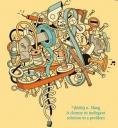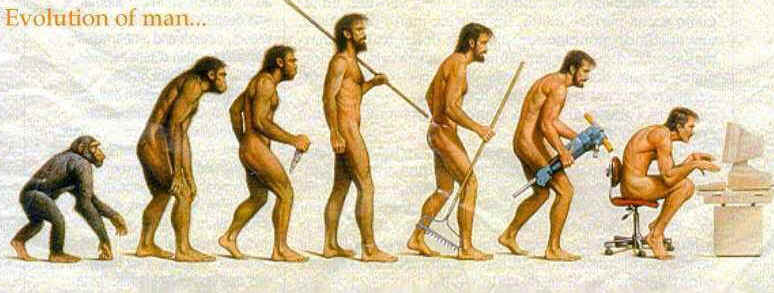Life on The Extreme Limit of Cognitive Stress
Saturday, July 18th, 2009A major theme in cognitive design is that we don’t design things to fit how we think-and-feel very well. The lack of cognitive fit generates some serious problems and creates major innovation opportunities. But sometimes it can be extreme.
Many of the extreme cases (see above) are caused by the fact that my brain function evolves at a much slower rate than culture does. The brain of a hunter gatherer does not fit the cognitive task environment of a knowledge worker. The classic example is the inappropriateness of the fight-or-flight response we experience while disagreeing with our boss over a performance review.
Books, articles and posts that illustrate this extreme lack of cognitive fit abound. Two recent examples (thanks to Gina Farag) are given below.
An article in the New York Times, Yes Looks Do Matter, on how stereotyping has evolutionary roots:
”Eons ago, this capability was of life-and-death importance, and humans developed the ability to gauge other people within seconds.”
And an opinion piece in LiveScience, Losing It: Why Self Control is not Natural, claims lack of self control may have had an evolutionary advantage:
Apparently, it’s human nature to be out of control. Imagine our early ancestors roaming the savannah looking for food. They might bring down a gazelle, but that meat was probably not enough for some of the group. As soon as they wiped their mouths, those lacking self-control were probably off again on the hunt because they could not deny themselves anything.
 Of course many brain functions, the so-called higher brain functions, have evolved specifically for the purpose of adapting to the modern information age. Right? Well it seems even the nobel function of reason has come under the assault from an evolutionary perspective. Take a look at the book Kludge: The Haphazard Construction of the Human Mind as an example.
Of course many brain functions, the so-called higher brain functions, have evolved specifically for the purpose of adapting to the modern information age. Right? Well it seems even the nobel function of reason has come under the assault from an evolutionary perspective. Take a look at the book Kludge: The Haphazard Construction of the Human Mind as an example.
Flight-or-fight, self control, stereotyping and reasoning are powerful forces in society today. Yet in many ways, our hardwired approach to these is wildly out of step with the cognitive task demands of today’s culture. The effects are quite visibile – a tsunami of unwanted behaviors – discrimination, poor health choices, workplace violence.
Our technology-fueled culture will continue to advanced at an accelerate pace. It seems clear the only way our poor old slowly evolving brains will manage is via excellence in cognitive design.
